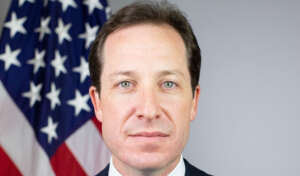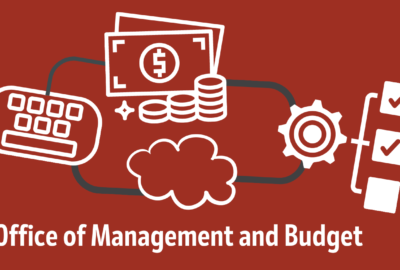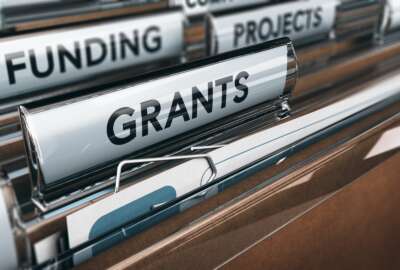All agencies to give grant funding opportunities a facelift
A year since it launched, the Council of Federal Financial Assistance already is improving the transparency, accountability and results of grant funding.
The four dozen grant awarding agencies across government have a plan to simplify how they advertise and promote grant opportunities.
Every agency submitted their approach to improving these Notice of Funding Opportunities (NOFO), which traditionally have been inconsistent, full of government jargon and caused grantees to hire experts to write applications.
“These plans will result in the simplification of hundreds of NOFOs throughout next year, which will lower burden for tens of thousands of grant applicants,” the Office of Management and Budget wrote in its update to the President’s Management Agenda on Nov. 7. “This will build on NOFO simplification pilots that agencies conducted in fiscal 2024, including AmeriCorps’ work to reduce the word count of their AmeriCorps State and National NOFO by one-third and the Department of Transportation’s cutting their Tribal Transit NOFO nearly in half.”
OMB made improving and simplifying NOFOs a focus in its update to the grants management regulations under 2 CFR 200. OMB updated that guidance in April as part of an ongoing effort to bring more standardization and transparency to the more than $1.2 trillion per year in grants that agencies award.
The submission of plans to simplify NOFOs was the only accomplishment for this past quarter under the PMA Business of Government Priority’s “Build capacity in federal financial management, including through federal financial assistance, to catalyze American industrial strategy, address climate-related risks, and deliver equitable results,” goal 2.
The accomplishment, however, is part of a broader effort to bring the grants management community closer together through the Council of Federal Financial Assistance (COFFA).
OMB launched COFFA in October 2023 with a goal “to identify opportunities to reduce burden on applicants or recipients. We are improving our program effectiveness by ensuring efficient delivery, and we are sharing best practices across the board. So we’re not going to just continue to focus on those differences, but instead identify where in fact we can and should be learning from each other,” said Deidre Harrison, the co-chairwoman of the council and deputy controller at OMB, during an interview with Federal Drive shortly after the establishment of the organization.
A year later, OMB said the NOFO pilots and subsequent plans from all agencies demonstrate the progress of the council.

“[COFFA] does that through the consistent implementation of federal financial assistance, policy management and data standards; simply put, COFFA is critical to breaking down silos within and between agencies to improve impact. Through this work, already, COFFA has improved transparency, accountability and results on that more than $1 trillion annual federal financial assistance,” said Jason Miller, OMB’s deputy director for management, during an Oct. 22 event marking the one-year anniversary of the council. “Before COFFA, federal grant making policies and operations were not actively coordinated, which often led to conflicting guidance from different agencies on the rules for federal grants. This generated some confusion at times for our recipients. For example, you could have a situation where a single recipient was receiving funds from two different agencies or two different parts of the same agency and receiving different guidance on how to interpret and comply with federal requirements for federal rules. Fast forward a year later, thanks to the COFFA, we now have a coordinated governance structure for how federal funds are used to support communities, and that coordination enables clearer and better aligned results, better aligned management, better aligned oversight.”
Over the last year, COFFA led the expanded effort to simplify NOFOs through the five pilots across 15 funding opportunities.
The Department of Health and Human Services led the initial NOFO pilot in 2023 and proved agencies could reduce the number of its pages and still meet all the compliance and outcome goals.
“It’s awfully difficult for many of the organizations that intended to apply for grants to understand the thing we want them to apply for. That’s especially true for small non-profits, for some local governments and other organizations with more limited capacity. These are often the recipients that we envision as potentially best positioned to do the work that we are funding and our NOFOs should result in us making decisions based upon just that, who is best positioned to do the work and deliver the outcomes, not who is best positioned to write an application against an overly complicated NOFO,” Miller said. “We’re already making significant progress on this front. COFFA has created a variety of resources, including checklists and guidelines and a tool kit that compiles promising practices for increasing the clarity of grant announcements.”
New ways to promote sharing
Molly Shea, the deputy for procurement management and the deputy senior procurement executive in the Office of Acquisition Management at the Department of Commerce, said in addition to the pilots, COFFA stood up an interagency community of practice, which created tools and artifacts that all agencies could use to improve their NOFOs.
“In addition to the pilot activities, the community practice discovered that other federal agencies were also using innovative simplification techniques in their NOFOs, most notably HHS, so those existing techniques became the building blocks of the NOFO simplification effort,” she said. “In September 2024, the community of practice launched an initial body of resources that all federal agencies can use, including a living NOFO simplification toolkit, plain language writing guidelines and logic model tips. With the support of COFFA, agencies developed 2025 NOFO simplification plans and are leaning into a continuous improvement mindset so that they can maintain the momentum of reducing burden, not only on federal financial assistance applicants, but the federal financial assistance workforce as well, in 2026 and beyond.”
Along with the progress around NOFOs, the council also served as the center for collaboration around new grant making standards, for work with the General Services Administration to take more advantage of SAM.gov tools like the procurement community does and for work with the Office of Personnel Management to create grants workforce competency model.
Chad Clifford, the executive director in HHS’ Office of Grants, Division of Policy Oversight, Effectiveness and Training, said the COFFA helped finalize 140 standard data elements for grant making agencies, which the Quality Service Management Office (QSMO) posted on the shared services website.
No longer far behind procurement community
Clifford said at the OMB event that by having the data standards, systems now can be more interoperable, making the ability to share and unlock data easier.
“Helping to create uniform data collections in easy ways to simplify, particularly for the public and for the applicants and recipients, what data they input and how that data is shared across agency systems and across programs. So you’re not inputting the same data field over and over again, promoting performance, and this is helping to share and bring transparency to existing performance and existing awards, both from financial and pragmatic perspective, bringing greater insights and oversight to programs and improvements for how we can drive both individual awards and programs as a whole,” Clifford said. “You’ll also find on [the website] our strategic roadmap for how we’re tackling this initiative, including our core principles as well as why it matters. We have stood up, most recently, a new interagency working group under the COFFA umbrella, made up of multiple awarding agencies, bringing together some of the best grants in IT and data experts in government to make recommendations to the COFFA so that we have good buy-in from federal partners, and going out to the public where appropriate as we continue tranche by tranche to develop data standards.”
Another COFFA working group surveyed members of the grants workforce to gain insights into what competencies do they have or should employees have in the future. The group is working with OPM on a draft competency model, that the full council will finalize in the coming months.
OMB’s Harrison said at the COFFA anniversary event that she used to feel like the procurement community and grants community were the “tale of two cities,” with the acquisition workforce well ahead in using tools and working together. But now through COFFA, Harrison said the grants community has a bigger voice in the tools and capabilities that the Integrated Award Environment (IAE) provides.
Tyson Whitney, director of Transparency and Accountability Reporting Division at the Agriculture Department and who led the COFFA working group to better integrate grant agency needs with IAE, said they have revamped the charters and the memorandum of understanding with IAE.
“There’s real opportunities and we’re super excited to get out of the gates. We have a laundry list that we’re working on, and it’s going to be an excellent effort,” he said at the event. “We will finally see an integrated SAM.gov environment to support us with all most of our basic functionality that you’ve enjoyed from SAM or just outside of the SAM environment.”
Copyright © 2025 Federal News Network. All rights reserved. This website is not intended for users located within the European Economic Area.
Jason Miller is executive editor of Federal News Network and directs news coverage on the people, policy and programs of the federal government.
Follow @jmillerWFED





